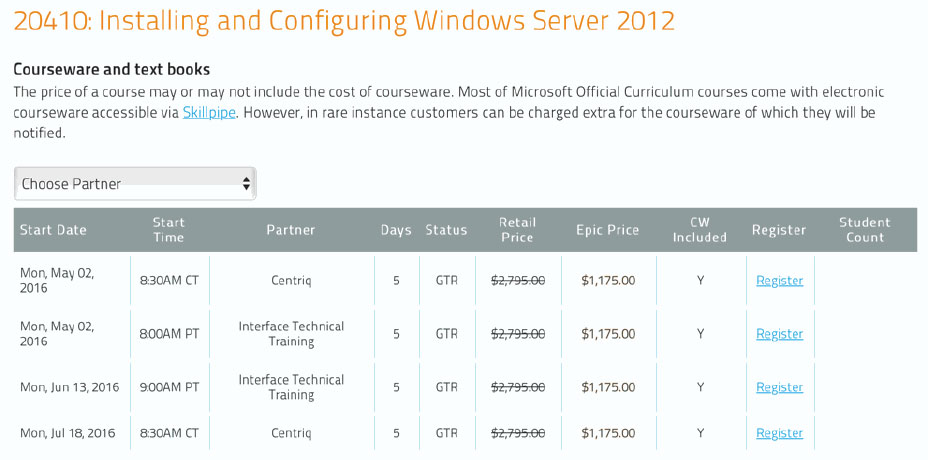TTDB7020: PostgreSQL Server Administration
About this Course
PostgreSQL is a powerful, open-source, object-relational database system known for being reliable, secure, and flexible. For administrators, learning PostgreSQL equips you with the skills needed to handle complex and high-performance databases in our data-driven world. Big-name companies like Apple, Cisco, Fujitsu, and IBM trust PostgreSQL for their critical applications, which highlights its significance and broad industry adoption. By getting the hang of PostgreSQL, administrators can boost their career opportunities and play a key role in the success of data-focused businesses.
PostgreSQL Server Administration is a three-day hands-on course geared for administrators seeking to sharpen their skills and elevate their database management capabilities. Throughout the course you’ll explore a wide range of essential topics, from server architecture and user accounts to monitoring and routine maintenance. Throughout the course, you’ll gain invaluable insights and practical techniques that will empower you to optimize, secure, and manage your PostgreSQL environment effectively.
As you navigate through server configuration, database reporting, backup and restore procedures and more, you’ll have the opportunity to apply your newfound knowledge to real-world scenarios. By the end of the course, you’ll be equipped with the confidence and skillset required to tackle a wide array of administrative challenges and to effectively manage your PostgreSQL databases.
Audience Profile
The ideal audience for this course includes database administrators, system administrators, IT managers, and DevOps professionals who are responsible for managing and maintaining PostgreSQL database systems. The course is also suitable for individuals transitioning into these roles or seeking to deepen their understanding of PostgreSQL administration, ensuring they are equipped with the necessary skills and knowledge to excel in their careers.
At Course Completion
This course combines engaging instructor-led presentations and useful demonstrations with valuable hands-on labs and engaging group activities.
Working in a hands-on learning environment led by our expert facilitator you will:
• Gain expertise in managing and maintaining PostgreSQL server architecture, including optimizing performance parameters, memory and disk management, and implementing security best practices.
• Build proficiency in creating, configuring, and securing user accounts by managing roles, privileges, and authentication methods tailored to an administrator's perspective.
• Develop the ability to efficiently monitor database activity, identify performance bottlenecks, and analyze resource usage to ensure optimal database performance.
• Acquire skills in routine database maintenance, such as index and table management, vacuuming and analyzing, and handling bloat, to keep the PostgreSQL environment healthy and efficient.
• Master backup and restore procedures, including implementing physical and logical backups, point-in-time recovery, and developing disaster recovery plans to ensure data integrity and availability.
If your team requires different topics, additional skills or a custom approach, our team can collaborate with you to further adjust the course to focus on your specific learning objectives and goals.
Outline
1. Server Architecture
• Understanding PostgreSQL layers
• Process and memory model
• Storage subsystem overview
• Transaction and locking
2. User Accounts
• Creating user accounts
• Managing roles and privileges
• Authentication methods
• Securing user access
3. Server Startup and Shutdown
• PostgreSQL startup process
• Graceful shutdown techniques
• Crash recovery mechanisms
• Identifying common issues
4. Server Configuration
• Essential configuration files
• Tuning performance parameters
• Memory and disk management
• Security best practices
5. Connections and Authorization
• Connection types and methods
• Managing connection limits
• Role-based access control
• Implementing SSL/TLS
6. Database Reporting
• Query performance analysis
• Identifying slow queries
• Using EXPLAIN and ANALYZE
• Index usage statistics
7. Logs
• Configuring log output
• Analyzing log data
• Log rotation and retention
• Troubleshooting common errors
8. Statistics
• PostgreSQL statistics collector
• Interpreting statistics views
• Monitoring performance metrics
• Detecting anomalies
9. Managing Databases
• Creating and dropping databases
• Managing tablespaces
• Schema management
• Handling large objects
10. Routine Database Maintenance
• Index and table maintenance
• Vacuuming and analyzing
• Managing dead rows
• Handling bloat
11. Backup and Restore
• Physical and logical backups
• Point-in-time recovery
• Backup strategies
• Disaster recovery planning
12. Monitoring Database Activity
• Active session monitoring
• Lock contention analysis
• Identifying long-running queries
• Resource usage tracking
13. Monitoring Disk Usage
• Disk space allocation
• Table and index sizing
• Identifying disk bottlenecks
• Capacity planning
14. Information Schema
• Navigating information schema
• Querying metadata
• Understanding system catalogs
• Exploring object dependencies
15. Wrap Up & Additional Resources
• Recap of key concepts
• PostgreSQL community resources
• Advanced topics exploration
• Continuous practice and learning opportunities
Prerequisites
Pre-Requisites
To ensure a smooth learning experience and maximize the benefits of attending this course, you should have the following prerequisite skills:
• Basic understanding of relational database management systems (RDBMS) and their core concepts, such as tables, indexes, and transactions.
• Familiarity with SQL, including the ability to write and execute simple queries, such as SELECT, INSERT, UPDATE, and DELETE statements.
• Working knowledge of command-line interfaces and experience navigating through directories, executing commands, and editing configuration files.
• General knowledge of computer systems and networking concepts, including the fundamentals of operating systems, file systems, and TCP/IP networking.
Take Before: We recommend attendees have the skills in the course listed below, or attend this course as a pre-requisite:
• TTSQL003 Introduction to SQL Querying Basics

